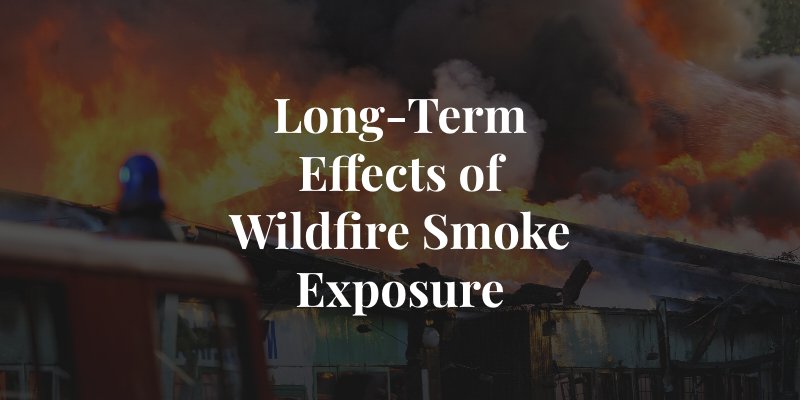When a wildfire occurs, the flames are not the only injury risk; inhaling the smoke created by the fire is also a considerable health hazard. Wildfire smoke can contain dangerous particulates and pollutants that, if inhaled, can have lasting health effects on victims. If you suffer long-term health problems due to smoke exposure, you may be entitled to financial compensation. Victims of the LA fires should document any health complications and work with our Eaton Fire lawyers or Palisades Fire attorneys to recover damages.

Respiratory Harm
Exposure to wildfire smoke, especially prolonged or daily exposure (e.g., firefighters) can result in respiratory problems that range from slight irritation to chronic lung conditions. Breathing in wildfire smoke can reduce lung function and permanently scar the lung tissues, weakening the respiratory system and making victims more likely to develop infections such as pneumonia or bronchitis. Wildfire smoke exposure can also exacerbate existing lung diseases, including asthma, or result in new lung conditions in people who previously didn’t have them. Repeated exposure can increase the likelihood of developing the condition or causing chronic bronchitis, with symptoms such as coughing, wheezing, trouble breathing and phlegm. Children are especially at risk of decreased lung function and developing chronic respiratory issues into adulthood.
Cardiovascular Problems
Long-term smoke inhalation can have a negative effect on the heart and cardiovascular system. Fine particulate matter entering the body through the lungs can impair heart function. It has been linked to pulmonary inflammation, hypertension (high blood pressure), arrhythmia, stroke, heart attack and heart failure. The elderly are at risk of worsening existing heart conditions, while younger individuals could be at an increased risk of premature death.
Neurological Health Impact
New research has recently emerged from the National Institutes of Health that connects long-term wildfire smoke exposure to dementia and other potential neurological problems. Chronic exposure to fine particulate matter that is less than 2.5 microns in diameter (a common type of wildfire air pollution) was connected by researchers to new cases of dementia after analyzing more than 1.2 million older Californians. The findings suggest a greater risk factor for dementia when exposed to particulate matter from wildfire smoke than from other sources.
Cancer Risk
Although research on this subject is limited, studies have shown an increased risk of lung cancer among people with prolonged wildfire smoke exposure. The smoke can contain various chemicals and carcinogens, such as formaldehyde and benzene. Long-term exposure to breathing these in may increase the risk of cancer development.
Immune System Suppression
Breathing in the numerous chemicals found in wildfire smoke may also weaken the immune system, making an individual more susceptible to various illnesses and diseases. An immune response that is weakened from long-term smoke inhalation may be unable to fight off infections, resist viruses and recover from illnesses.
Seeking Compensation for Long-Term Health Effects From Wildfire Smoke Exposure
If you suffered extended or long-term exposure to wildfire smoke in California, you may be entitled to financial compensation for all of your related injuries, illnesses and losses – including any chronic conditions you developed as a result. You could potentially seek this compensation through an insurance claim or a California wildfire lawsuit. If a utility company, electric company or another party caused the wildfire that impacted you, they may be held financially responsible for your related bills and losses, including all necessary medical treatments, ongoing care, therapies, medications, lost quality of life, pain and suffering, lost wages, and lost future capacity to earn. For more information, contact a wildfire litigator at Bridgford, Gleason & Artinian.
